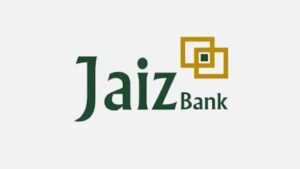
Fidelity Bank boosts key performance indices to rank amongst tier-one banks
Fidelity Bank got an upgrade from Fitch Ratings last month in its long-term issuer default rating (IDR) from ‘B-‘ to ‘B’, an indication of the increased creditworthiness and excellent track record of the bank.
Notably, the rating agency also upgraded Fidelity Bank’s National Long-Term Rating to “(nga)” from “BBB+(nga),” placing the financial institution among the top tiers of banks in the country. Simply put, the B credit rating is given to a prospective borrower, that is rated to have the ability to meet its financial commitments.
The rating firm stated that the upgrade recorded by Fidelity Bank was due to its improved business profile and resilient financial metrics. For better context of how the ratings are generated via the Viability Rating (VR), which is used to reflect the asset quality, reasonable capitalisation, and liquidity of a bank. A metric that Fidelity Bank scaled in stellar fashion.
According to the bank’s financial performance in the previous full year, its non-performing loans ratio dropped to 2.9 per cent in 2021 from 3.8 per cent recorded in the previous year, one of the lowest NPL ratios in the Nigerian banking industry.
Fidelity Bank was also able to boost its top and bottom line in 2021, growing its gross earnings by 21.6 per cent to N250.8 billion, while profit before tax surged by 35.7 per cent to N38.1 billion.
In the same vein, capital adequacy ratio improved to 20.1 per cent , while returns on average equity rose to 12.5 per cent, showing how well the bank is utilizing shareholders fund in generating profit.
In terms of balance sheet components, Fidelity Bank grew its customer deposits by 19.2 per cent to N2.02 trillion, while its loans and advances improved by 25.1 per cent to N1.66 trillion. Its total asset appreciated by 19.3 per cent to N3.29 trillion in the same period.
Fidelity Bank was able to demonstrate its ability to obtain credit at the highest levels after the Nigerian lender raised $400 million from the international debt market through a 5-year tenor Eurobond, with a 7.765 per cent coupon in October 2021.
The lender was able to assemble a team comprising JP Morgan, Citigroup, and Afreximbank to manage the Eurobond jointly due to the bank’s reputation for world-class corporate governance and risk management, along with its highly experienced and top-quality management.
This further demonstrates the bank’s prudent risk management practice as well as its impressive track record in the global markets having previously issued Eurobonds in 2013 and 2017.
Notably, these performance ratios were selected after querying half a dozen other variables namely: Assets Size (Ass), Gross Earnings (GRE), Net Interest Margin (NIM), Cost to Income Ratio (CIR), Digital Earnings, Loans to Deposit Ratio (LDR) Cost of Risk (CoR) and Ratio of Non-executive-to total directors.
While analysts await the bank’s H1 2022 financial results, it suffices to say that the bank’s performance remains one to look out for over the next few months.
Fidelity Bank is a full-fledged commercial bank operating in Nigeria with over 6.5 million customers and 250 business offices and digital banking channels across the country. Fidelity Bank was recently recognized as the Best SME Bank Nigeria 2022 by the Global Banking & Finance Awards.
Also, the bank won awards for the ‘Fastest Growing Bank’ and ‘MSME & Entrepreneurship Financing Bank of the Year’ at the 2021 BusinessDay Banks and Other Financial Institutions (BAFI) Awards, a testament of Fidelity Bank’s support for business growth and impressive track records over the years.



